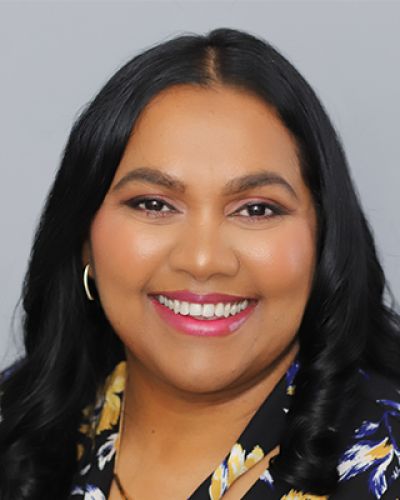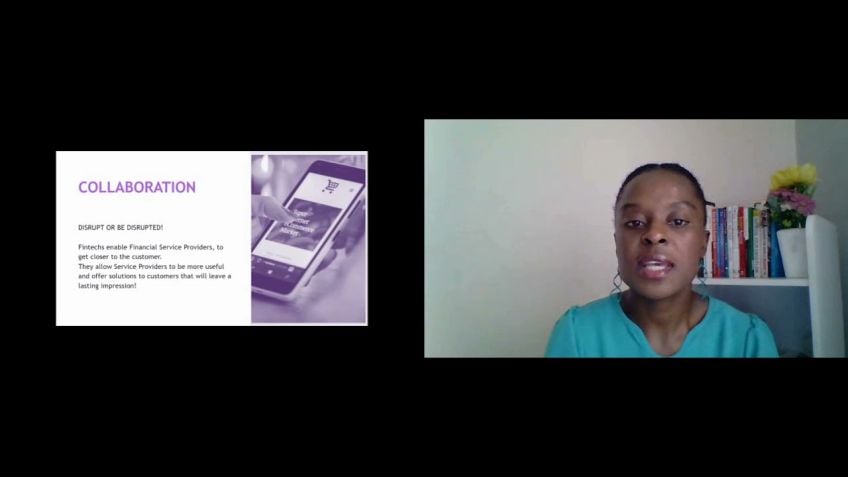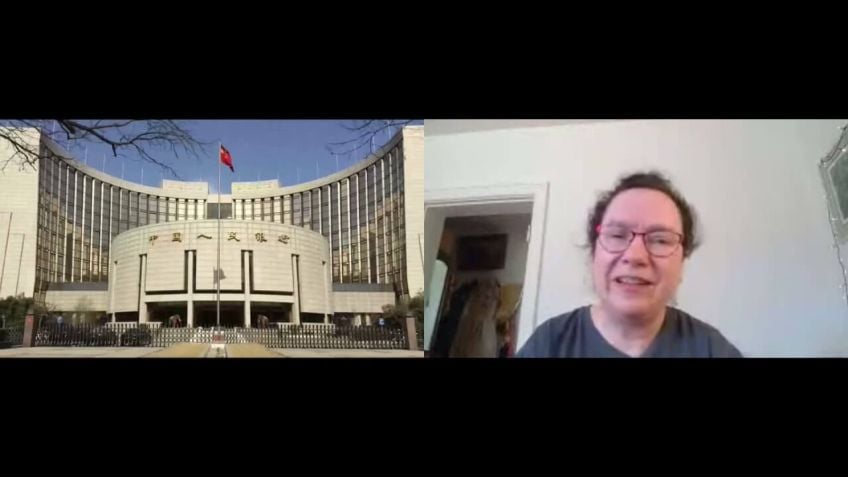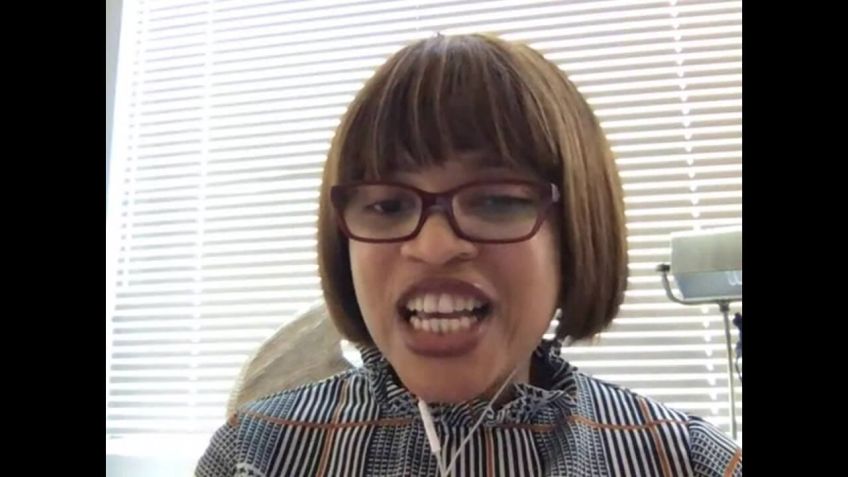Advancing Women's Inclusion in Sustainable FinTech Startups
Bhuva Shakti
Chief Ethics & Culture Officer (CECO)Financial Inclusion: Empowering Women Entrepreneurs in the Post-Pandemic World
Hello everyone, my name is Boba and I am a Social Impact Entrepreneur at Wallet Max, a fintech startup based in New York. Alongside this, I proudly serve as the Chief Ethics and Culture Officer at 'Women in A', a global nonprofit. With wide-ranging experience in the financial services sector, encompassing investment banking, regulatory compliance, digital transformation, sustainable finance, and more importantly, ethics and inclusion in all industries, today I am here to demystify a crucial topic - Financial Inclusion.
Understanding Financial Inclusion
Financial inclusion denotes the provision of affordable, responsible access to everyday financial products and services for individuals or small businesses. This encompasses everything from fundamental transactions to complex financial products. The World Bank highlights financial inclusion as a significant driver to eradicate extreme poverty and promote shared prosperity worldwide.
The Rising Tide of Women Entrepreneurs
Post-pandemic, we've witnessed an upsurge in women entrepreneurs. In this wave of entrepreneurship, women prioritize social impact as part of their company culture. Furthermore, they are keen on creating a robust network of women entrepreneurs by supporting each other through job offers, business contracts, partnerships, networking, and mentoring.
Challenges in Financial Inclusion for Women Entrepreneurs
Despite these leaps, achieving financial inclusion for women entrepreneurs comes with its challenges. It's not uncommon for women entrepreneurs to face questions focused more on failure than success when applying for funding. Additionally, financial barriers become more pronounced for diverse women and nonbinary individuals, who also grapple with high interest rates and inadequate collateral.
The Imperative of Financial Inclusion
Providing more resources and support for women entrepreneurs in terms of financial inclusion has gained urgency, particularly after the pandemic. Financial education, digital access, financial literacy, and societal norms are all key areas that require focused attention to bridge existing gaps in societal justice.
The Way Forward with Wallet Max
At Wallet Max, we adhere to the United Nations' 17 sustainable development goals as a blueprint for peace, prosperity, and sustainable development. As part of this approach, we believe that ending poverty must go hand in hand with improving women's health and education, reducing inequalities, fostering economic growth, and tackling climate change.
We also propose leveraging public-private partnerships, as there are numerous nontraditional funds available for individuals or businesses. Additionally, we support more inclusive digital access and social inclusion by empowering individuals to exercise their basic human rights and remove bias in AI and tech platforms.
A Solution for Women Entrepreneurs – Wallet Max
With our 360-degree inclusion approach, we partner exclusively with women-led startups. We aim to grow their social impact and revenue, focusing on climate innovation, economic inclusion, and ethical enterprise operations. Wallet Max offers exclusively sustainable loyalty rewards programs that are both affordable and sustainable. This way, we can solve the challenges of financial inclusion while media promoting socio-economic impact due to local small business expansion risks.
Thank you for joining me today. Please feel free to connect with me on Linkedin if you would like to discuss this topic or share any other recommendations. Together, we can foster financial inclusion and enable women entrepreneurs to thrive in a post-pandemic world.
Video Transcription
Hey everyone. Thanks for joining today. My name is Boba. I'm dialing in from New York today. I'm a social impact entrepreneur at Wallet Max of fintech starter. I also lead women in a, a global nonprofit as the Chief Ethics and Culture Officer.Uh My experience is in financial services sector, especially investment, banking, regulatory compliance, digital transformation, innovation, and sustainable finance, and more importantly, ethics and inclusion in all industries. Uh I focus on artificial intelligence Blockchain and the metaverse.
Today, we'll explore financial inclusion and how important it is for women entrepreneurs to thrive and succeed in the post pandemic world. And also I want to touch upon how sustainable FTEs like Wallet Max can help. So what is financial inclusion? So we often talk about diversity and inclusion, digital inclusion. Likewise, financial inclusion means how can we provide affordable and also responsible access to everyday financial products and services? Um Be it for individuals anywhere or for small businesses as well? Some of the examples could be as simple as uh transactions to buy some online. It includes a financial product or service, right? Uh Using a mobile payment service again, don't want a lot of fees. Uh How can we get a credit uh card without any bias for who you are? No discrimination. And also even as simple as taking an insurance policy, uh the World Bank considers financial inclusion as a key enabler to reduce extreme poverty and boost shared prosperity across the globe.
Financial access facilitates day to day living and also helps families and businesses plan for everything from long term goals to unexpected emergencies, post pandemic. We've also seen an increase in women entrepreneurs. Some of the trends seem to be um the freedom to pursue your passion uh without any workplace bias uh or uh uh without any challenges in hybrid or remote working or even as simple as uh getting access to workplace benefits like health care or parental leaves. Uh We see more women shifting to entrepreneurship and they definitely emphasize social impact as part of their company culture. It's inherent, it's not an afterthought. Uh Women do certainly paid forward. Uh Most women entrepreneurs have women mentors or they support another women.
They do that by either giving a job or signing a business contract or partnership or even by simply networking and mentoring. Uh We do also know that uh recent research indicates that especially women of color and non-binary, people hire more diverse candidates. So kind of they lift each other up, right? But uh uh trying to do financial inclusion for women to also uh comes with its own challenges uh over the years, we have been successfully breaking barriers. Uh There are some positives but we also know there's still more to be done. For example, when we are raising funds for start ups or applying for a micro loan to fund your small business, many times questions are posed that include how will you not lose versus how will you win? Right. So it is typically asked for uh uh male counterparts. Uh Another challenge of course is the overall total funding. Even before the pandemic, women got only less than 3% of total money raised or invested in any kind of business at any stage. On top of this, then you overlay uh diverse women and non binary people. They have an additional challenge. Um Also with the current high interest rates, uh uh it's difficult to get financial funds for their small businesses if they don't have sufficient collateral uh for their financing needs.
Uh So why do we see an urgency to provide more resources and support for women entrepreneurs and financial inclusion? Right now? It's because, you know, uh with the pandemic, we all uh very accelerated divides in our societal justice. Uh There are exposed vulnerabilities and apps across digital access, financial literacy as well as societal norms, right? And also more importantly, uh financial education is not taught in schools like your regular curriculum that you see or science or math. Uh which means when younger generation starts earning money and they're trying to find the best balance between spending and savings for their own long term grows as well as more personalized, experienced living, right? And uh also we know the future is digital. We are at a women in tech conference today. Uh It's gonna be in everything whether or not we are actually in the tech field, we are coders or engineers doesn't matter. Uh But we also know that the local and global economies are intertwined. We saw that with the pandemic and the supply chain issues and the digital infrastructure challenges. So our goal would be to uh enable as we go forward an inclusive access to each and every person in our community, right? So regardless of their background, and more importantly, what we want to ensure is uh uh bring forward the unbanked and underbanked population. So this is easily uh couple of billions of people around the world already, uh especially women.
And when they build these digital systems, uh they should be by default inclusive. For example, if you're developing a financial product or service, how can someone in a remote village can access at a low band internet, right? It's not going to be high speed like a city and above all um ensuring user data privacy. Uh So how do we ensure we get consent every step of the way when we build these digital systems uh that gives consumers confidence to use your product, it increases trust and then the secure access it's more uh network uh expansion for your business as well. Now, we've seen enough challenges. How do we ensure that we tap into some of the opportunities that can increase financial wellness? Um Most of you may have already heard. Uh There are 17 sustainable development goals from the United Nations. Uh They provide a blueprint, kind of a shared blueprint uh for peace and prosperity as well as it talks about. How do we do good for People Planet, not only for now but also into the future. And it's a global agenda shared by both the uh developed nations and emerging nations. Uh And at Wallet Max, we recognize that ending poverty must also go hand in hand with the improving women's health and education.
Uh We want to reduce inequalities, uh advanced economic growth, but also we should tackle climate change while we preserve our oceans and forests. So with that in mind, we also continuously recommend uh government resources. Uh For example, the World Bank tracks diverse gender income globally in a database, right? And anyone can use this, it's free open source. You can take this and you can define local policy changes that can further enable financial inclusion at the local level. And then it can have a scaling effort into the regional international levels. Are also we recommend leveraging public private partnerships. Um There are a lot of nontraditional funds that are available to be mobilized for uh individuals or businesses. Uh be it a small business, a tech start up, you name it, right? For women. Um And overall mission also includes broader inclusion. So not just digital inclusion but also financial inclusion and social inclusion uh within digital inclusion. I'm looking for solutions that enable equitable access to digital tools. Um We want to also keep in mind with the hybrid environment, how can all the financial products and services be accessed seamlessly across any device and channel, right? So we need to meet the customers at the place they where they are right at uh the level where they are and it should be omni channel as well. Uh For example, there are localities where internet access could be challenged.
We saw that during the pandemic and hence education, financial education uh digital inclusion, they continuously become a challenge, right? And with social inclusion, we also want to focus on lifestyles of individuals and society uh improving that especially starting with the allowing them to exercise their basic human rights.
So, so how can we eliminate bias in A I algorithms and all the technical platforms to allow them to have basic human rights? And um with this 360 degree inclusion uh in mind at Wallet Max um with my 25 years of corporate executive and nonprofit C suite experience, uh We do partner exclusively with women L start ups. So the goal is to grow their social impact as well as the revenue together. They are not um a mutually exclusive, right? So we also focus on climate innovation, economic inclusion, and ethical enterprise operations. So how do we bring all of this together? Uh We also know that the recent research indicates $2 billion P as in billion dollars in market share. Uh with women led start up, they are losing customers and revenues to large franchises. You may have noticed in your local neighborhoods as well. Uh This is due to limited financial capital or human capital to expand their marketing sales or business development. Um So at Wall of Max, we solve these challenges for women by offering exclusive loyalty rewards programs that are both affordable and sustainable. So you can have two types of rewards. One is either a digital reward or it could be also a crypto reward.
Um So we bring together the ecoconscious retail shoppers, they can purchase from one small business accumulate rewards and redeem it at another business within our network and still get more discounts. So which means it's a win, win, win for sustainable consumers, women business owners and of course for wallet max bottom line, right? So with this, we solve the uh del problem in women's financial inclusion and socio-economic impact due to local small business expansion risks.
Um I want to thank again everyone for joining. Uh Please connect with me on linkedin. You want to talk more about this topic or any other suggestions, recommendations. Please do feel free to make me happy to chat further. Thank you.





